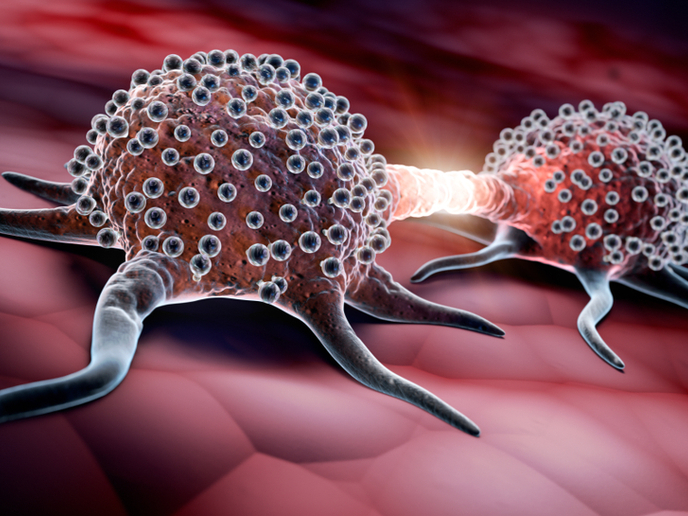What drives tumour metastasis?
Research supported in part by the EU-funded MetaRegulation project has led to a promising new lead on how tumours metastasise, or spread to other parts of the body. As reported in the study(opens in new window) published in the journal ‘Nature Metabolism’, cancer cells can interrupt a metabolic pathway that breaks down fats and proteins to boost the levels of a by-product called methylmalonic acid (MMA). This causes the cancer cells to become more invasive, consequently driving metastasis. Cancer is one of the leading causes of death worldwide, with the majority of these deaths caused by metastases. Once cancer cells break off from the original tumour and enter the bloodstream or lymph system to spread to other parts of the body, they become mostly impossible to cure. The researchers’ discovery gives rise to the possibility that, by targeting this process, we could find ways to prevent a cancer from spreading.
What happens during metastatic transition
“A lot of work has been focused on primary tumor initiation and growth, or examining the metastatic tumor, but to go from the primary tumor to the metastatic tumor, that transition has not been studied very extensively,” observes study co-senior author Dr John Blenis of Weill Cornell Medicine, United States, in a news item(opens in new window) posted on ‘Technology Networks Cancer Research’. The study’s other senior author, Prof. Sarah-Maria Fendt from the Vlaams Instituut voor Biotechnologie Center for Cancer Biology, Belgium, received EU funding for the research through the MetaRegulation project. As reported in the news item, the research team has been studying the metabolic changes that cells undergo during the metastatic transition for years. Their efforts led to the earlier discovery that our bodies produce more serum MMA as we get older, although they could not tell where it comes from. They also found that higher levels of MMA corresponded with worse cancer outcomes. However, the fact remained that healthy cells also produce MMA, so in their new research the team looked further into the metabolite’s cancer-related activities. “Cancer cells themselves can hijack the pathway that makes methylmalonic acid and this forms a feed-forward cycle that drives cancer progression towards more aggressive and more metastatic forms,” explains co-first author Dr Vivien Low, also from Weill Cornell Medicine. Adding to a growing body of research, the team’s discovery indicates that oncometabolites produced during metabolism can provide the impetus for cancer progression and metastasis. The current study supported by MetaRegulation (Metabolic regulation of metastatic growth) focuses on breast and lung cancer cells. However, according to the news item, the researchers are now extending their research to other types of cancer cells to compare the mechanisms involved, and they are also looking for ways to attack the process. “Metastasis is responsible for about 80 to 90 percent of cancer-related mortality, so if we can predict when someone has the potential to develop metastatic tumors, or treat those metastatic tumors that might have this pathway up-regulated, then we might have a very effective, novel therapy.” Dr Blenis concludes. For more information, please see: MetaRegulation project(opens in new window)



